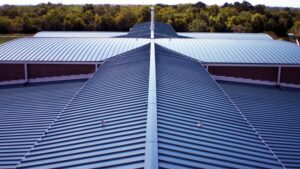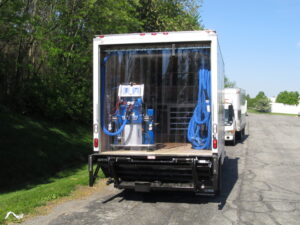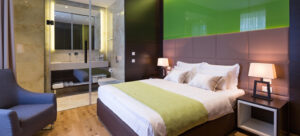In the ever-evolving hospitality industry, every decision made regarding infrastructure plays a pivotal role in ensuring customer satisfaction, cost-effectiveness, and long-term sustainability. Among the numerous elements that define a hotel’s structure, the choice of roofing material stands out as a crucial consideration. In recent years, R Panel Metal Roofs have emerged as a game-changer in the industry due to their durability, aesthetics, and overall advantages over traditional roofing materials.
Understanding R Panel Metal Roofs
R Panel Metal Roofs are a type of metal roofing system known for their strength, longevity, and versatility. Composed of durable steel or aluminum, these roofs consist of interlocking panels with raised ribs that create a streamlined and attractive appearance. The seamless installation process and adaptability to various architectural designs make them a favorable choice for hotels seeking both functionality and visual appeal.
Durability and Longevity
One of the primary reasons hotels should consider R Panel Metal Roofs is their exceptional durability. Unlike traditional roofing materials like asphalt shingles or wood, metal roofs offer superior resistance to harsh weather conditions such as heavy rain, strong winds, hail, and snow. This durability ensures a longer lifespan, reducing the need for frequent repairs and replacements, thereby saving significant maintenance costs in the long run.
Energy Efficiency
Hotels striving to enhance their sustainability credentials will find R Panel Metal Roofs to be an excellent choice. These roofs often come with reflective coatings that help in reducing heat absorption, thereby lowering cooling costs during hot seasons. Additionally, the recyclability of metal makes it an environmentally friendly option compared to other non-recyclable roofing materials.
Cost-Effectiveness
While the initial cost of installing R Panel Metal Roofs may seem higher than some traditional roofing materials, the long-term cost-effectiveness is undeniable. Their durability and minimal maintenance requirements translate to reduced repair and replacement expenses over the years, providing significant cost savings to hotel owners or management.
Aesthetic Appeal and Customization
Beyond functionality, R Panel Metal Roofs offer a wide range of design options to complement various architectural styles. Hotels can choose from an array of colors, finishes, and textures to match their brand identity or create a distinctive look. Additionally, the sleek and modern appearance of metal roofs can enhance the overall curb appeal of the hotel, leaving a lasting impression on guests.
Fire Resistance and Safety
In the hospitality industry, ensuring guest safety is paramount. R Panel Metal Roofs boast excellent fire resistance, offering an added layer of protection in case of fire incidents. This fire-resistant feature not only safeguards the property but also contributes to meeting safety regulations and building codes.
Conclusion
The hospitality industry’s pursuit of excellence demands strategic decisions that prioritize durability, aesthetics, sustainability, and cost-efficiency. A R panel metal roof emerge as an ideal roofing solution for hotels seeking to elevate their infrastructure standards. Their exceptional durability, energy efficiency, cost-effectiveness, aesthetic appeal, and safety features position them as a superior choice compared to conventional roofing materials.
By investing in R Panel Metal Roofs, hotels not only ensure a long-lasting, low-maintenance roofing solution but also demonstrate their commitment to environmental responsibility and guest safety. The benefits of these roofs extend far beyond their installation, offering a sound investment that aligns with the evolving needs of the hospitality sector. Ultimately, embracing R Panel Metal Roofs represents a proactive step towards achieving a resilient, visually appealing, and sustainable infrastructure, setting hotels apart in a competitive market.


